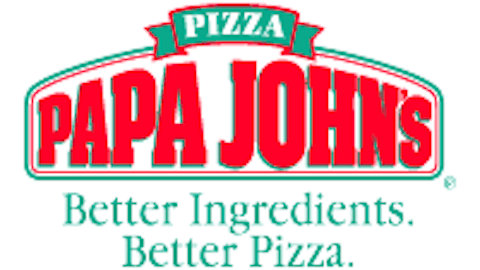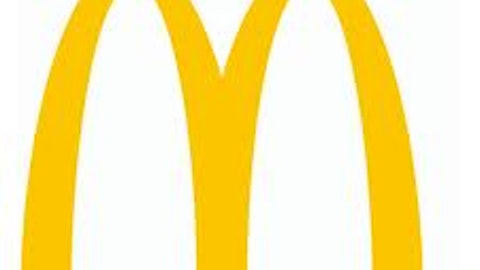Shares of Starbucks Corporation (NASDAQ:SBUX) have done well over the past few years as the share price has appreciated tremendously since 2009, from nearly $8.40 per share to nearly $73.40 per share. Recently, Starbucks Corporation (NASDAQ:SBUX) gained more than 7% in one trading day as a result of its impressive third-quarter results. Is Starbucks Corporation (NASDAQ:SBUX) a good buy at its current price? Let’s take a look.
Impressive operating performance

What impresses me is its high growth in comparable store sales. Starbucks Corporation (NASDAQ:SBUX)’s global comparable store sales growth reached 8%, mainly driven by 7% growth in transactions. The high growth was led by comparable store sales growth in many regions, including Americas, Europe, Middle East, and Africa (EMEA) and China/Asia Pacific (CAP), at 9%. Moreover, the company opened 341 net new stores in the quarter, bringing the total global store number to 19,209. Chairman and CEO Howard Schultz felt great about the third-quarter results, he said: “Starbucks’ Q3 results represent the best across-the-board third-quarter performance in our 42-year history.”
A lot of opportunities for growth
For fiscal 2014, Starbucks Corporation (NASDAQ:SBUX) expects to grow its revenue by 10%-13%, with mid-single digit growth in its comparable store sales. Its EPS is estimated to grow at 18%-22%, to $2.55 to $2.65 per share, excluding the gain in Starbucks’ equity sale in Chile, Argentina, and Mexico. Starbucks is trading at around $73.40 per share with a total market cap of $55 billion. The market values Starbucks quite expensively, at 19.44 times its trailing EBITDA (earnings before interest, taxes, depreciation, and amortization).
Its dividend yield is not high, as it is only 1.20%. Looking forward, Starbucks should enjoy good growth from multiple opportunities, including beverage innovation, increasing penetration into the tea market with Teavana, and the higher exposure to the fast growing CAP markets. For the full year 2013, the number of new stores in the CAP markets is expected to grow by 15%.
How about Dunkin’ Brands and McDonald’s Corporation (NYSE:MCD)?
Starbucks’ valuation is a bit lower than Dunkin Brands Group Inc (NASDAQ:DNKN) but much higher than the valuation of McDonald’s Corporation (NYSE:MCD). Dunkin Brands Group Inc (NASDAQ:DNKN) is trading at around $43.80 per share with a total market cap of $4.6 billion. The market values Dunkin’ Brands the most expensively, at 19.92 times its trailing EBITDA. Dunkin’ Brands is also among the global leaders in quick service restaurants, having around 17,400 points of distribution in around 60 countries.
What makes me excited about Dunkin’ Brands is its 100% franchise business model. Consequently, it does not own a lot of assets and incurs much less maintenance capital than the company-owned store model. The asset-light characteristic allows the company to have more financial and operating flexibility. Looking forward, Dunkin’ Brands expects to grow its revenue by 6%-8% for the full year 2013, with 10%-12% growth in adjusted operating income. Full year 2013 EPS might be in the range of $1.50-$1.53 with free cash flow of around $125 million to $135 million. At the current trading price, Dunkin’ Brands offers investors a dividend yield of 1.80%.
McDonald’s Corporation (NYSE:MCD) is the cheapest valued among the three. At around $98 per share, McDonald’s is worth $98.30 billion on the market. The market values McDonald’s at 11.33 times its trailing EBITDA. In contrast to the growing operating performance of Starbucks, McDonald’s comparable sales growth was much lower, at only 1%. The comparable sales declined in Europe and several emerging markets including Asia/Pacific, Middle, and Africa. Despite the sluggish operating performance and outlook, McDonald’s has kept expanding its footprint in fast growing markets.
Recently, McDonald’s decided to enter Vietnam with its well-known developmental licensee. Vietnam is considered one of the most favorable markets in the world for global consumer goods corporations, with several attractive demographic attributes including rapidly rising middle-class income and a high percentage of young population. Vietnam expects to have its first McDonald’s restaurant at the beginning of 2014.
Among the three quick service restaurant chains, McDonald’s seems to be the most attractive for income investors with its highest dividend yield of 3.10% and a decent payout ratio of 55%.
My Foolish take
Starbucks has been always a favorite long-term pick for patient investors due to its impressive growing operating performance and international expansion opportunities. I also like Dunkin’ Brands with its 100% business franchise model, which does not require a lot of maintenance capital expenditure. However, Starbucks and Dunkin’ Brands have quite high valuations at their current prices. I would rather wait for future price corrections before initiating long positions in these two businesses.
The article Is Starbucks a Buy After Impressive Third-Quarter Earnings? originally appeared on Fool.com and is written by Anh Hoang.
Anh HOANG has no position in any stocks mentioned. The Motley Fool recommends McDonald’s and Starbucks. The Motley Fool owns shares of McDonald’s and Starbucks. Anh is a member of The Motley Fool Blog Network — entries represent the personal opinion of the blogger and are not formally edited.
Copyright © 1995 – 2013 The Motley Fool, LLC. All rights reserved. The Motley Fool has a disclosure policy.



